Perfecting your agricultural scientist resume is crucial for harvesting all the career opportunities that lie ahead of you. But how do you make a resume that best showcases your experience and skills? We’ve prepared the useful tips, examples, and resume samples, condensing them into the following guide.
In this guide, we discuss the essential steps for writing a professional agricultural science resume. Keep reading to learn all about:
- Choosing the right format for your agricultural science resume
- Crafting a compelling agricultural science resume summary
- Selecting which key skills to include on a resume as an agricultural scientist
- Describing your work experience as an agricultural scientist effectively
- Displaying your education as an agricultural scientist correctly
- Accessing top resources for job-seeking agricultural scientists
1. Choose the right format for your agricultural science resume
When writing an agricultural scientist resume, the first key step is to decide what resume format you plan on using. Each resume format is slightly different, with different purposes in mind.
Here’s a quick breakdown of the three main formats:
- Reverse-chronological: An RC resume focuses mainly on work experience. In this format, your work experience section is the largest and most prominent on the document.
- Functional: A functional resume focuses on education, skills, and unpaid experience. Many applicants who lack relevant work experience utilize this format, such as recent college graduates.
- Hybrid: A hybrid resume spreads out the focus of the document evenly between all sections. Oftentimes, this format is used by those making a career path change.
Regardless of which format you ultimately end up selecting, you always need to include a well-formatted header at the top of the page. This header should contain your name, professional title, and contact information.
Here is an example of a well-formated agricultural scientist resume header
Mason Marrow, Agricultural Scientist
(123) 456-7890 | mmarrow@email.com | linked.com/in/mason-marrow
2. Craft a compelling agricultural science resume summary
Now that you have the proper formatting elements in place, your next step is to write a resume summary.
A resume summary should always include a brief overview of your professional history, such as your years of experience and any specialized expertise you possess.
This summary can also include a statement on what types of benefits or opportunities you are looking for in an agricultural science job.
Here is an example of a well-written agricultural science resume summary
Passionate agricultural scientist with 7+ years of experience specializing in studying how to improve the sustainability of farming irrigation systems. Seeking a position with an agricultural research center that will allow me to continue my research and work directly with local farmers to develop new and more sustainable irrigation technology.
3. Select the best skills to include on a resume as an agricultural scientist
What makes a great agricultural scientist?
More than likely, the answer that came to mind included more than one skill.
This is important to consider when deciding what skills to include on your agricultural scientist resume, as you should include an array of both technical and interpersonal skills.
Here are 5 examples of technical agricultural science skills to include on a resume
- Agricultural systems and processes
- Farming and crop growth strategies
- Conducting experiments
- Gathering agricultural samples
- Writing research reports
Here are 5 examples of interpersonal agricultural science skills to include on a resume
- Strong verbal and written communication
- Collaboration
- Problem-solving
- Adaptability
- Leadership
4. Describe your work experience as an agricultural scientist effectively
When you are ready to begin writing your work experience section, you should list your most recent job first and work backward from there.
In the descriptions of your work experience entries, use bullet points to organize the information and make it easy to skim over for employers. Keep in mind that most employers will not read your resume in its entirety, so the more skimmable it is, the better.
Here is an example of a work experience entry from an agricultural scientist’s resume
Agricultural Scientist at McMillan Farm Labs
Cheyenne, WY
June 2019 to November 2021
- Developed a new crop planting system that increased the efficiency of irrigation by 15% and increased annual crop yield by 25%.
- Assisted in the implementation of new farm management technology that reduced operational expenses by more than 30%.
- Discovered a new strain of corn that can grow 10% faster than standard strains without losing nutritional quality.
5. Display your education as an agricultural scientist correctly
The last element to focus on for your agricultural scientist resume is the education section.
When creating your education section, make sure to always list the highest level of education you have completed, as well as the institution you attended and your date of graduation or completion.
You may also include any relevant certifications you possess within this section.
Here is an example of a well-crafted education section on a veterinary resume
B.S. in Agricultural Science
N.C. State University
Raleigh, North Carolina
- Major: Agricultural Science & Farm Systems
- Graduated: 2018
Certifications:
- Sustainable Agriculture Graduate Certificate, National Agricultural Library
6. Top resources for job-seeking agricultural scientists
As we wrap up our guide, let's unearth the top job search resources specifically tailored for agricultural scientists. These tools are not just about finding a job; they're about growing your career.
- Industry-specific job boards: Websites like AgCareers and EnvironmentalCareer are the fertile ground for agricultural job listings. They cater specifically to your field, making your job hunt more efficient.
- Professional associations: The International Society of Precision Agriculture (ISPA), the European Society for Agronomy (ESA), and the International Association for Plant Biotechnology (IAPB) are not just for networking. They also list job opportunities in the sector.
- University career services: If you're a recent graduate or alumni, your university's career service center can provide access to job listings and networking events specific to your field.
- LinkedIn: Utilize LinkedIn not only for networking but also for its job search function. Tailor your search with keywords like "agricultural science" and "agronomy" to find relevant roles.
- Indeed and Glassdoor: While broader in scope, using specific search terms related to agricultural science can uncover opportunities in research institutions, universities, and companies looking for your expertise.
- Continuous education: Platforms like Coursera, edX, Udemy or even specific university extension programs offer courses that can not only boost your skills but also connect you to a wider network.
Remember, the job search is a marathon, not a sprint. Regularly visiting these sites, updating your resume, and networking within professional associations can increase your visibility and chances of landing that next great opportunity.
Agricultural Scientist Resume FAQ
How can I best showcase my skills on an agricultural scientist resume?
Highlight both your technical skills (like laboratory techniques, fieldwork competencies, and data analysis software) and soft skills (such as project management, communication, and teamwork). Use specific examples from your work or research experience where these skills led to successful outcomes.
I'm submitting my resume via ATS. How do I incorporate keywords properly?
Analyze the job listing for keywords related to required skills, technologies, and qualifications. Integrate these terms naturally into your resume's summary, experience, and skills sections to improve your resume’s visibility in ATS scans. Make sure the keywords are spelled exactly as they appear in the job posting.
Is it important to list publications and presentations on my resume?
Yes, especially for positions that value academic and research contributions. List relevant publications, presentations, and posters under a separate section, using a consistent citation format. This demonstrates your active engagement with the scientific community.
How do I effectively showcase projects on my agricultural scientist resume?
For each project, provide a concise description that includes the objective, your role, the techniques or methodologies used, and the outcomes or impact (e.g., improvements in crop yield, advancements in sustainable practices). If the projects are collaborative, specify your contributions to highlight teamwork and leadership skills.
Can I include grants and awards on my resume?
Absolutely! You can create a separate section titled "Grants and Awards" to list any funding you've secured for your research or awards you've received for your work. Mention the name of the grant or award, the granting or awarding body, and the date. This highlights your recognition by peers and institutions for your contributions to agricultural science.

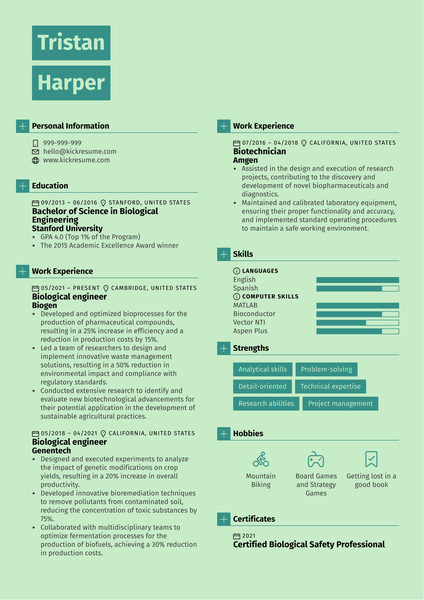

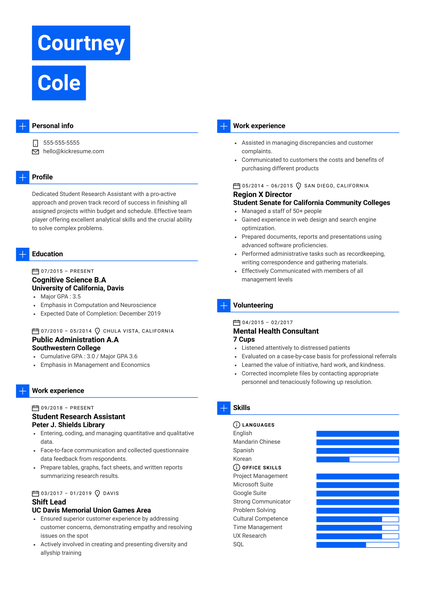

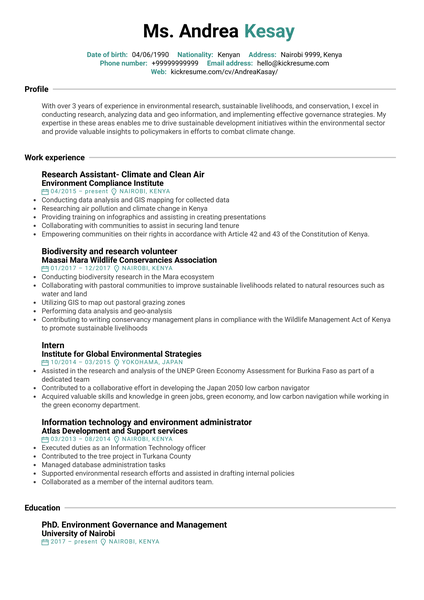
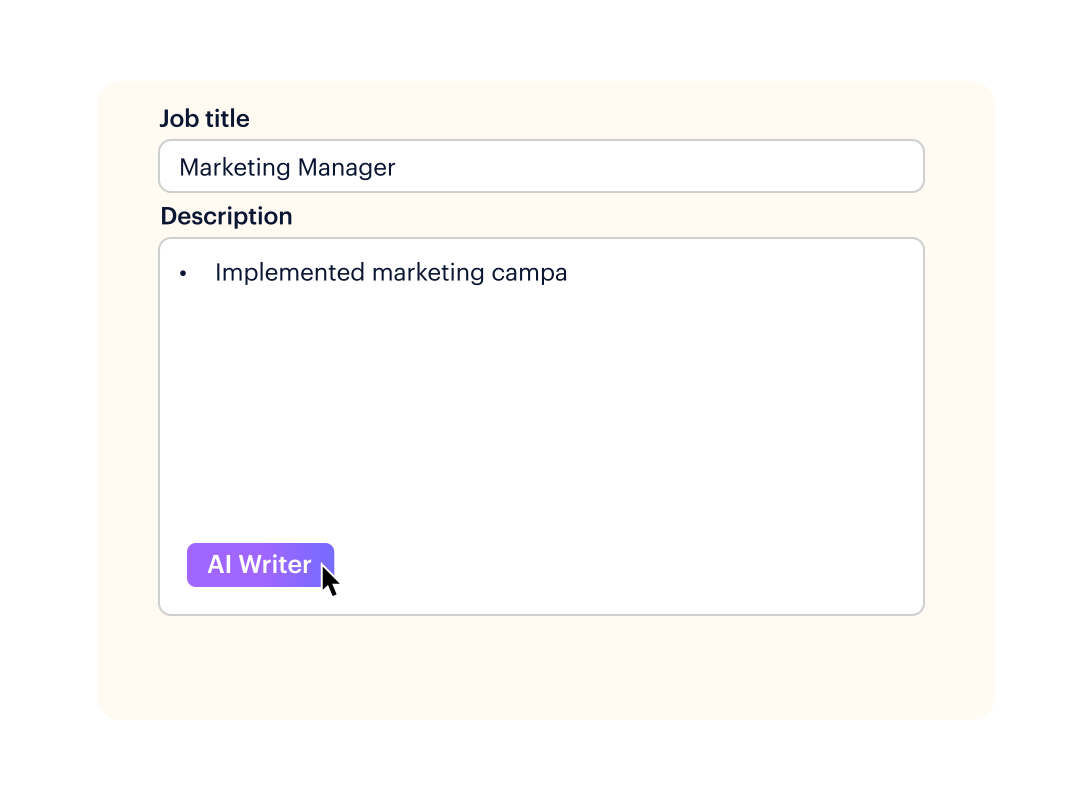

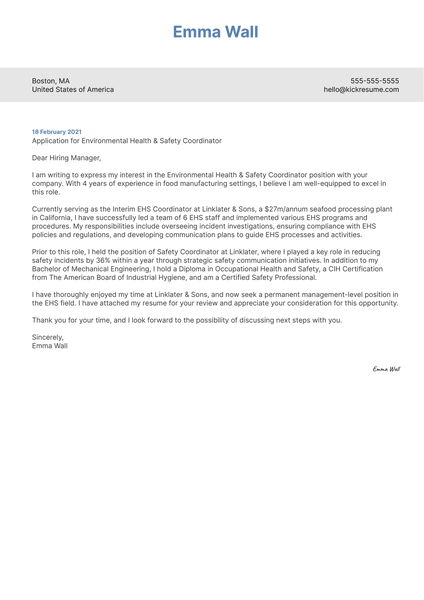

![How to Write a Professional Resume Summary? [+Examples]](https://d2xe0iugdha6pz.cloudfront.net/article-small-images/i-Profile.svg)
![How to Put Your Education on a Resume? [+Examples]](https://d2xe0iugdha6pz.cloudfront.net/article-small-images/i-Collage-Universities.svg)
![How to Describe Your Work Experience on a Resume? [+Examples]](https://d2xe0iugdha6pz.cloudfront.net/article-small-images/Experience.svg)


